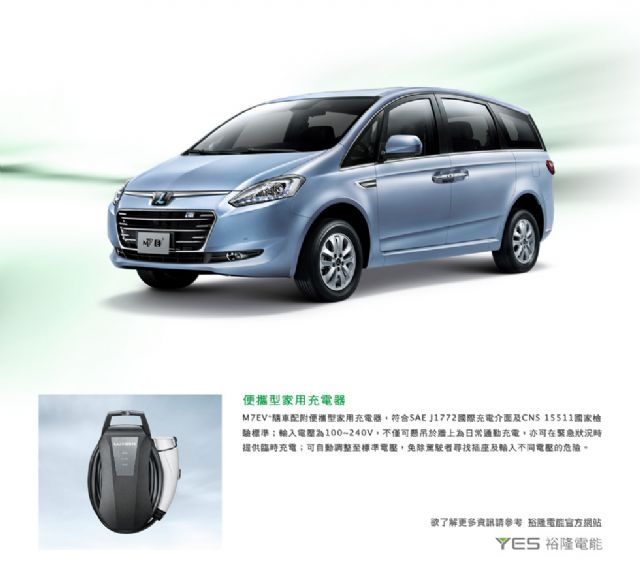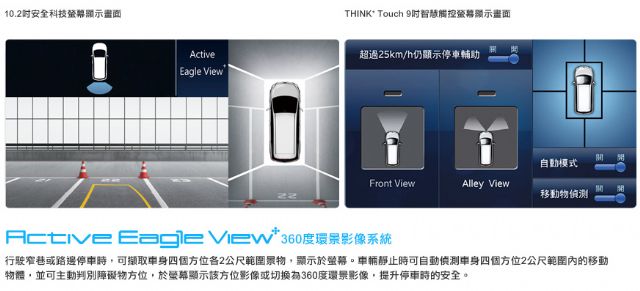Yulon of Taiwan Starts Direct Selling of Luxgen BEV Locally
2014/10/01 | By Quincy LiangYulon Group, a major automobile manufacturing/sales conglomerate in Taiwan, recently started selling its own Luxgen line of battery electric vehicles (BEVs) in the domestic market. To make the BEV, the M7 EV+, more popularly priced, Yulon directly sells the vehicle and provides battery-leasing service with low monthly installment.

The LUXGEN M7 EV+ utilizes advanced core technology to achieve both high performance and extended driving range, with 150KW motor capable of 201HP and 220Nm of torque, outperforming similar-class, gasoline engine vehicles. Authorized for use on public roads and highways, the M7 EV+ makes Luxgen the first auto brand in Taiwan to offer government-certified BEVs for multi-applications to set a milestone in EV development.
To meet Chinese central government's policy goal to promote EV adoption throughout China, Yulon plans to assemble the M7 EV+ by its Chinese subsidiary Dongfeng Yulon Motor Co., Ltd., a joint venture in China set up with Chinese automaker Dongfeng Group to produce and sell Luxgens. Yulon plans to launch its M7 EV+ in 2016 in China.

Yulon Group has in the past few years launched five BEVss models under two own-brands, Luxgen and tobe. It has produced the BEVs on its EV-specific production lines at its factory in central Taiwan, with most of the BEVs run in EV pilot projects throughout the island.
Backed by abundant experience and know-how from pilot projects, Yulon decided to launch the M7 EV+, a pure-electric multi-purpose van (MPV), in Taiwan to test the new segment.
To promote its M7 EV+, Yulon announced donating seven units to neighboring communities surrounding its factory in central Taiwan and promised to help construct EV charging stations in the area for free.
Yulon opted to sell separately the vehicle and battery to build consumer acceptance of its BEVs. A M7 EV+ is originally priced higher than NT$2 million (US$66,666), but retails without battery pack about NT$1.3 million (US$43,333), to be only NT$100,000 (US$3,333) costlier than a gasoline-powered M7. The lithium-ion battery pack retails for NT$976,000 (US$32,533) or available for lease monthly at NT$10,000 (US$333), without burdening the lessee with cost of battery appreciation and malfunction.
The BEV cruises steadily at 100 kilometers per hour for about 110 kilometers, equaling per-kilometer charging cost of about NT$0.76 (US$0.03), versus NT$3.7 (US$0.12) of the gasoline-engine version, resulting in up to four-fifths saving in total fuel cost, says Yulon.
With the Taiwan government having approved commodity-tax breaks for BEVs sold in Taiwan and key EV technologies being mature, industry sources say rising popularity of EVs still depend on availability of charging infrastructure and battery cost.
Caption 1: Luxgen M7 EV+ developed and made by Yulon Group of Taiwan, and its portable home charging port. (photo from Luxgen Motor)
Caption 2: M7 EV+ also features advanced active-safety automotive-electronic systems onboard. (photo from Luxgen Motor)




